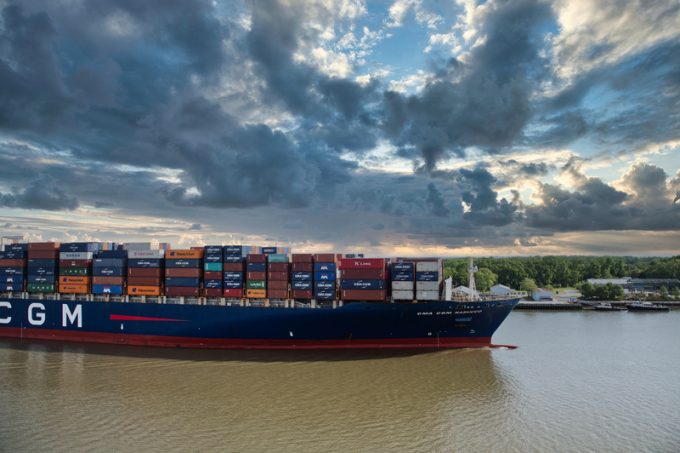Hapag-Lloyd won't take bookings if port congestion leaves cargo stranded
A “cautious” Hapag-Lloyd has warned it will not accept bookings if port congestion leaves cargo ...

CMA CGM yesterday followed Maersk’s shock price announcement on Monday with a big hike in its Asia-North Europe rates.
The French carrier said from 1 August it would increase its 20ft FAK rate to $1,075 and its 40ft rate to $1,950, which compares with the $1,025 and $1,900 proposed increases by Maersk for 31 July.
Meanwhile, Maersk and 2M partner MSC have announced that this week’s sailing of the 19,462 teu MSC Rifaya from Shanghai on 8 July on the AE55/Griffin loop ...
Maersk Air Cargo sees volumes fall as it aims for 'margin in favour of revenue'
Keep our news independent, by supporting The Loadstar
Container spot rates diverge: to Europe still falling, but firmer to the US
Hapag-Lloyd won't take bookings if port congestion leaves cargo stranded
Ecommerce likely the front-runner in resurge of transpacific trade after deal
Airfreight players eye new routes as demand on the transpacific nosedives
China-US trade tariff pause could drive a rebound for transpacific rates
Service chaos from trade ban with India a problem for Pakistan shippers
Airfreight rates ex-China 'loss-making', but hopes of a trade deal stay high
Indian coastal freight attracts major carriers, but regional tension disrupts
Serious threat to jobs in US logistics as tariffs cause economic 'stagflation'
Volume surge and an early peak season? 'Don't celebrate too soon,' warning
APMM floats along on 'solid' Q1 profitability in Ocean, well prepared for choppy water
White House u-turns see freighters flying but keep logistics players on their toes
Carriers impose 'emergency operation' surcharges on Pakistan cargo
MSC in terminal switch as Nhava Sheva gets strong start to new fiscal year


Comment on this article